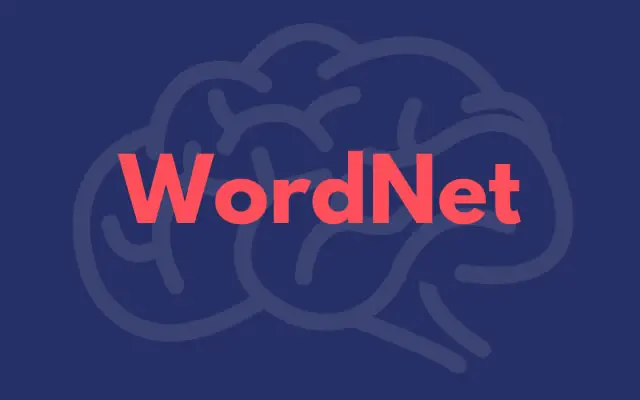Table of Contents
Introduction
WordNet is a comprehensive lexical database of the English language, developed under the direction of George A. Miller, a renowned professor of psychology at Princeton University.
This incredible resource has become an indispensable tool for linguists, educators, and developers working on various projects in natural language processing (NLP).
What Makes WordNet Unique?
WordNet stands out because it organizes English vocabulary into sets of cognitive synonyms called synsets. Each synset represents a distinct concept and provides a deeper understanding of words and their relationships. Here are some of its key features:
- Grouping by Synsets:
- Nouns, verbs, adjectives, and adverbs are grouped into synsets, each representing a unique concept.
- This grouping helps users grasp subtle distinctions between closely related words.
- Interlinked Relationships:
- Synsets are connected through conceptual-semantic and lexical relations.
- These connections include relationships like synonyms, antonyms, hyponyms (subcategories), hypernyms (broader categories), meronyms (part-whole relationships), and more.
- Navigational Structure:
- WordNet’s network of meaningfully related vocabulary items can be explored intuitively using a browser or app interface.
- Users can trace a word’s various meanings and relationships across the database.
Applications of WordNet

WordNet’s extensive database makes it a powerful resource in various fields. Some of its notable applications include:
- Natural Language Processing (NLP):
- Word sense disambiguation.
- Semantic analysis.
- Machine translation.
- Artificial Intelligence (AI):
- Enhancing chatbot responses and conversational AI systems.
- Supporting recommendation systems based on semantic understanding.
- Education and Language Learning:
- Helping learners understand nuances in word meanings and usage.
- Supporting vocabulary building and comprehension activities.
How to Access WordNet
There are several ways to access and use WordNet:
- Online Browsers:
- Navigate the WordNet database directly through its online interface.
- Applications:
- Downloadable versions of WordNet are available, making it convenient to use offline.
- APIs for Developers:
- WordNet offers APIs for integration into NLP tools and applications.
Current Limitations and Future Potential
While WordNet is already an impressive tool, it remains a work in progress. Continued development is encouraged to:
- Expand its database.
- Improve semantic connections.
- Adapt to evolving linguistic trends and computational needs.
Why Should You Use WordNet?
WordNet is more than a dictionary; it’s a dynamic tool for exploring the richness of the English language. Whether you’re a language learner, teacher, researcher, or developer, WordNet can enhance your understanding and use of English vocabulary.


